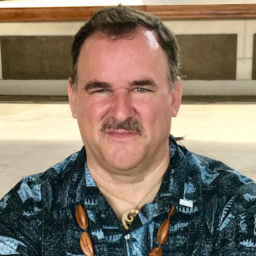In this webinar, Mark Stacy, MD, and Peter Schmidt, PhD, discuss clinical trials for people with Parkinson’s. Both speakers have extensive experience designing and implementing clinical trials for Parkinson’s.
NOTES
For a written overview of clinical trial participation, visit this blog post.
Dr. Stacy and Dr. Schmidt discuss multiple important topics related to trial participation. A few highlights of the conversation are described below. Please watch the video for all the details.
Reasons to Participate in Clinical Research
Participating in clinical trials helps improve understanding of Parkinson’s. You might think there are enough people participating, but the more diverse the group of participants in a trial, the more meaningful the conclusions drawn from the research. Moreover, the faster a research team enrolls their targeted number of participants, the faster the research will be completed. Your participation can help!
According to Dr. Stacy and Dr. Schmidt, another reason to consider participating in clinical trials is to have access to the best care possible. This might seem counterintuitive, since trials for new treatments inherently involve risk and you might be randomized into a placebo group. However, responsible researchers have an interest in providing top-level care and attention to trial participants because it improves the quality of the data the trial generates.
Ensuring Safety
Researchers have an ethical obligation to ensure trials are as safe as possible for participants. There are other ways you can maximize your safety while participating in clinical research.
One way to do this is to only participate in trials listed on clinicaltrials.gov or the Fox Trial Finder. This isn’t a comprehensive strategy, though. For example, some trials listed on these websites may have exclusion/inclusion criteria or other factors that would make them risky for you. For this reason, talk with your care team about trials in which you are considering participating.
Another way to ensure your safety as a participant is to carefully listen and read during the informed consent process. It can be helpful to have a friend or family member go through this with you. Whether you have someone with you or not, be sure to ask any questions you have about the trial or the informed consent process before you decide to enroll in a trial.
Cost
Generally, participating in a clinical trial should not cost you money, but you should ask about any possible expenses during the informed consent process. There are some minor exceptions to this general expectation. If you are asked to pay for a trial, this is a major red flag. If you are unsure if the expense is reasonable, talk with your care team about it, or contact us at blog@dpf.org. We are here to help.
Excitement for New Approaches
In recent years there has been an increase in trials exploring novel, non-dopaminergic treatment pathways.
Both speakers in this webinar express excitement about this development, even though new treatment targets are sometimes surprising. For example, Dr. Schmidt shares a story in this webinar about his initial response to hearing about trials of exenatide as a Parkinson’s treatment. Despite his initial surprise, results of early-stage trials were promising, and exenatide is now being investigated as a disease modifying treatment in a phase III trial in the United Kingdom.
The critical takeaway is that the only way to know if a treatment idea will benefit people with Parkinson’s is to research it. Research requires people with Parkinson’s to participate in clinical trials. There are many ways you can do this.
To learn more about clinical trials for Parkinson’s, search clinicaltrials.gov or the Fox Trial Finder. You can also read our monthly news round-up post, which features a section about new and ongoing research as well as reports about completed trials.
ADDITIONAL RESOURCES
John’s Hopkins: Why Participate in Clinical Research
NIH: Why Should I Participate in a Clinical Trial
Six Myths About Parkinson’s Clinical Trials
CVN424: A Novel, Non-dopaminergic Treatment Currently in Clinical Trial
Meet Our Speakers
 PETER SCHMIDT, PhD
PETER SCHMIDT, PhD
Chief Scientific Officer, RHO
Peter Schmidt, Ph.D., is the Chief Scientific Officer at Rho. From 2009 through April 2018, Dr. Schmidt served as Senior Vice President and Chief Research and Clinical Officer at the Parkinson’s Foundation where he oversaw research, education, and outreach initiatives. Through his tenure at the Parkinson’s Foundation, Dr. Schmidt served as PI for the Parkinson’s Outcomes Project (POP) from launch through the 10,000th subject recruited, the largest clinical study ever in Parkinson’s conducted at 30 academic medical centers. The Parkinson’s Outcomes Project was designed to identify best practices in Parkinson’s care but served as a platform for many other studies.
Dr. Schmidt is active in research, specializing in the intersection between mathematics and medicine, with a special interest in mapping the n-dimensional spaces of clinical data. Schmidt serves as an advisor to several government, industry, and foundation initiatives. He has been involved in several national-scale quality initiatives including with the US National Quality Forum and the Fresco Network in Italy. Schmidt has recent or current advisory engagements in wearable sensors, telemedicine, remote monitoring, and clinical trial design. He has contributed to AHRQ and Commonwealth Fund publications and has been an invited speaker for NIH and diverse international patient and professional conferences. Schmidt previously worked in corporate finance-focused on healthcare innovation, created chronic disease management systems, and served as Chief Operating Officer of a joint venture of Oxford, Stanford, and Yale delivering online education. Educated at Harvard and Cornell, he had a fellowship at New York’s Hospital for Special Surgery.
 Mark Stacy, MD
Mark Stacy, MD
Associate Professor of Neurology at Medical University of South Carolina
Mark Stacy is an Associate Professor of Neurology and the Director of the Neuroscience Clinical Research Center at Duke University. He has been named to “Best Doctors in America.” Dr. Stacy is a fellow in the American Academy of Neurology, and sits on the Board of Directors of WE MOVE, a not-for-profit foundation dedicated to education in Movement Disorders. He is a member of the Parkinson Study Group, Dystonia Study Group and Tremor Study Group, and serves on the Medical Advisory Boards for the Benign Essential Blepharospasm Research Foundation and the International Essential Tremor Foundation.
Dr. Stacy has clinical trial experience in Parkinson’s Disease (PD), Dystonia, and Tremor and has served on numerous protocol steering committees and Safety Monitoring Boards. His independent research interests include motor and non-motor symptoms of wearing off, and pathological gambling and other impulse control disorders in PD. He has published manuscripts in the areas of PD, dystonia, tremor and other movement disorders. He is also the editor of The Handbook of Dystonia.

















